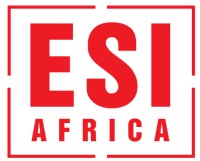The Elites projects exemplifying the uptake of hydrogen in Africa
Preview a selection of hydrogen demonstration project nominees for the 10th African Power & Energy Elites: Projects and People magazine (fondly known as The Elites).
Africa’s journey into the hydrogen economy is gathering pace, not only through large-scale visions and international partnerships but also via the establishment of pilot projects and operational testbeds that ground those ambitions.
These initiatives represent the early stages of hydrogen production, integration, and application—ranging from research and demonstration sites to actual on-the-ground facilities that power transportation, backup energy, and industrial use.
Angola green hydrogen project (concept stage / pilot planning)
In Angola, the government is preparing the groundwork for its first hydrogen production initiative in the Namibe Province. The project, spearheaded by the national oil company Sonangol in cooperation with German partners, is still in the feasibility and early design phase.
However, small-scale pilot infrastructure is being planned to test the potential of integrating solar and wind power into electrolysis systems. This effort marks Angola’s entry into the green hydrogen space, targeting domestic decarbonisation and future exports.
Egypt hosts multiple green hydrogen pilots
Egypt is leading the continent with multiple operational and pilot-stage hydrogen facilities. The country inaugurated its first functional green hydrogen facility in 2023, located in the Ain Sokhna industrial zone within the Suez Canal Economic Zone. This project, developed jointly by Scatec, Fertiglobe, and Orascom Construction, began with a 20MW electrolyser—part of a broader 100MW plan—producing green ammonia from solarpowered hydrogen.
In addition to this flagship development, Egypt hosts early-stage pilot platforms operated by AMEA Power and other partners along the Red Sea. These include experimental systems for integrating desalinated seawater into electrolysers, laying the groundwork for future large-scale hydrogen and ammonia hubs.
Mauritania: Nour electrolyser test facility (pilot)
In Mauritania, where desert conditions offer vast potential for solar and wind energy, CWP Global has established a test facility in the Nouadhibou Free Zone. The pilot is designed to validate the performance of both alkaline and PEM electrolyser technologies under extreme arid and hot weather conditions. This technical groundwork supports the massive $40 billion AMAN hydrogen and ammonia project, which is currently in development.
Though commercial production is still several years away, the testbed plays a crucial role in ensuring that equipment and systems will be resilient and cost-effective when deployed at scale.
Morocco: Greenh2a pilot project
Morocco has emerged as a leader in green hydrogen research and development thanks to its operational pilot facilities. The GreenH2A project, located near the Jorf Lasfar industrial park, is a collaboration involving IRESEN, OCP, and Fraunhofer ISE. It includes a 100kW-scale pilot plant that has been operational since 2021, producing green ammonia from hydrogen generated by solar-powered electrolysis.
Additionally, a more comprehensive MASEN–IRESEN demonstration platform, known as the Green H2A Platform, has been established in Benguerir. This facility features modular electrolysers, a desalination unit, and an ammonia synthesis system. It is used for research, training, and system integration testing, providing handson insights into Morocco’s broader hydrogen strategy and industrial decarbonisation plans.
Namibia: Demonstration phase and pilot under development
In Namibia, a series of early demonstration activities are supporting what is expected to become one of the continent’s largest hydrogen hubs. While full commercial production from the Hyphen Hydrogen Energy project is several years away, the company has already begun site testing in the Tsau ǁKhaeb National Park.
These pre-development efforts include pilot-scale electrolysis, testing of desalination technology, and environmental assessments. In a separate but related initiative, Namibia is also planning Africa’s first hydrogen-powered freight rail pilot.
TransNamib and Hyphen have announced a project to test hydrogen fuel cell locomotives on key transport corridors, with on-the-ground trials for the HyRail Namibia pilot anticipated to begin in 2025/26.
Nigeria: Unido green hydrogen mini-pilot
In Nigeria, the United Nations Industrial Development Organization (UNIDO), in partnership with the national government, has launched a small-scale hydrogen pilot in Lagos. This facility is focused on testing green hydrogen as a clean energy source for urban backup power.
The aim is to explore whether decentralised hydrogen systems can offer reliable alternatives to diesel generators in areas where grid electricity is inconsistent. Although modest in size, the pilot represents a significant experiment in utilising hydrogen to support energy access goals in one of Africa’s most populous nations.
South Africa: Hydrogen pilot and operational portfolio
South Africa has established itself as a leader in applied hydrogen technologies through a mix of operational pilots and national demonstration programmes. Along the Hydrogen Valley corridor—from Limpopo through Johannesburg to Durban—a suite of mobility and infrastructure pilots is underway.
Anglo American is operating a hydrogen-powered haul truck at its Mogalakwena platinum mine, supported by an on-site hydrogen refuelling station and solar-based hydrogen production. Sasol and the Industrial Development Corporation are also involved in these initiatives, which are seen as catalysts for commercialising hydrogen in transport and mining.
Separately, hydrogen fuel cells have been deployed as emergency backup power systems for public hospitals in Pretoria and other parts of the Gauteng Province.
This project, supported by the Department of Science and Innovation and implemented by Bambili Energy, showcases the practical application of hydrogen technology in critical infrastructure. Furthermore, South Africa’s national research initiative, HySA Infrastructure, operates an advanced testing site at North-West University.
This includes PEM electrolyser rigs, hydrogen storage trials, and compression systems, all of which support domestic innovation and localisation in the hydrogen value chain.
Tunisia: Green hydrogen pilot unit (planned)
In Tunisia, a green hydrogen pilot facility is in the planning stage, led by a collaboration between the national utility Société Tunisienne de l’Electricité et du Gaz (STEG), the National Agency for Energy Conservation, and Germany’s Deutsche Gesellschaft für Internationale Zusammenarbeit (GIZ).
The proposed facility will integrate solar electrolysis and aims to inject hydrogen into existing gas infrastructure or convert it into synthetic methane. While construction has yet to begin, procurement is underway, and the pilot is expected to support Tunisia’s ambitions for sector coupling and energy transition.
Cover photo: scharfsinn86©123rf



